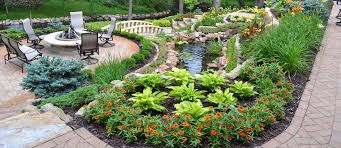
The Best Garden Hose on the Market: Our Top Picks
A garden hose is a must-have for any green thumb. But with so many different types and brands on the market, it can be hard to know which one to choose. In this blog post, we’ll help you narrow down your options by sharing our top picks for the best garden hose on the market. By the end, you’ll know which hose is right for your needs.
1. TheBestGardenHose.com Pick: Flexzilla Pro Water Hose
This hose is our top pick because it’s made of durable materials that are built to last. The Flexzilla Pro Water Hose is made of a premium hybrid polymer that is kink, abrasion, and puncture resistant. It’s also flexible in all weather conditions, making it easy to use no matter what time of year it is. Plus, it comes with a lifetime warranty, so you can be confident in your purchase.
2. Runner Up: Goodyear Heavy-Duty Rubber Garden Hose
If you’re looking for a garden hose that is built to last, then the Goodyear Heavy-Duty Rubber Garden Hose is a great option. This hose is made of heavy-duty rubber that can withstand hot water temperatures up to 180 degrees Fahrenheit. It’s also kink-, abrasion-, and puncture-resistant, making it a durable choice for even the most active gardener. And if you’re not satisfied with your purchase, Goodyear offers a limited warranty.
3. Budget Pick: Gilmour Flexogen Super Duty Garden Hose
If you’re on a budget but still want a high-quality garden hose, then we recommend the Gilmour Flexogen Super Duty Garden Hose. This hose is made of tough vinyl that can withstand hot water temperatures up to 140 degrees Fahrenheit. Plus, it’s flexible in all weather conditions and comes with a 10-year warranty against defects in materials and workmanship.
There are a lot of different garden hoses on the market, which can make it tough to know which one to choose. But with our top picks for the best garden hose on the market, you can’t go wrong. Whether you’re looking for a durable hose that will last for years or a budget-friendly option, we’ve got you covered. So get out there and start watering your plants!
What is the best garden hose on the market?
- Best Overall: Flexzilla Zillagreen Garden Hose at Amazon.
- Best Expandable: J&B XpandaHose at Amazon.
- Best Lightweight: TheFitLife Flexible and Expandable Garden Hose at Amazon.
- Best Heavy-Duty: Bionic Steel Garden Hose at Amazon.
- Best Rubber:
- Best 100-Foot:
- Best Soaker:
What is the most durable type of garden hose? Rubber: Among the most durable choices for a garden hose, rubber is optimal, but it tends to be heavier than other materials and can cost more. Premium hoses often contain rubber. Vinyl: Flexible and lighter in weight than rubber, vinyl is a popular choice of hose manufacturers.
What is the best hose that does not kink?
| PRODUCT | FEATURES |
|---|---|
| Teknore Apex Neverkink | Length: up to 100 Feet Material: Reflex Mesh Patented Material Fittings, Size: Aluminum, 5/8 Inch |
| Briggs & Stratton | Length: up to 100 Feet Material: Reflex Mesh Patented Material Fittings, Size: Aluminum, 5/8 Inch |
Which is better 3 4 or 5 8 garden hose? The main difference between the 5/8 inch vs the 3/4 inch garden hose are as follows: a 5/8 inch garden hose basically provides a good water volume and sufficient water pressure for domestic consumption. A 3/4 garden hose is the choice for larger usage of water.